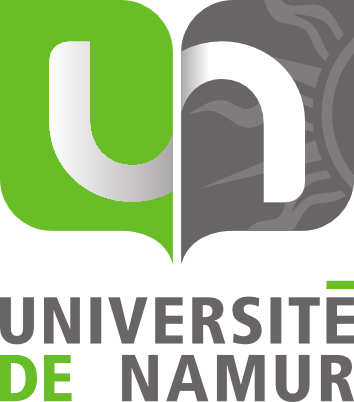Soutenance de thèse de doctorat en sciences biomédicales
Characterization of the anticancer properties of new hydroxamate-based histone deactylase inhibitors
Date : 22/11/2019 16:00 - 22/11/2019 19:00
Lieu : Auditoire M08
Orateur(s) : Manon LERNOUX
Organisateur(s) : Carine MICHIELS
Membres du jury
- Thierry ARNOULD (UNamur), Président
- Carine MICHIELS (UNamur), Promotrice et secrétaire
- Marc DIEDERICH (Hopital Kirchberg, Luxembourg)
- Pierre SONVEAUX (UCLouvain)
- Michael SCHNEKENBURGER (Hopital Kirchberg, Luxembourg)
- Johan WOUTERS (UNamur)
- Jean-Pierre GILLET (UNamur)
- Mario DICATO (Centre hospitalier de Luxembourg)
Résumé
Aberrant activation or overexpression of histone deacetylase (HDAC) isoenzymes trigger disruptions of the functional acetylation landscape, therefore contributing to the development of numerous cancers. Accordingly, pan- or selective HDAC inhibitors (HDACi) represent a powerful class of epigenetically active therapeutic drugs that have already demonstrated promising anti-cancer properties in pre-clinical studies and are undergoing clinical trials for the therapy of many cancers.
In this study, we assessed the anti-cancer activity of the novel hydroxamate-based pan-HDACi MAKV-8, which complied with the Lipinski’s “rule of 5”, in various chronic myeloid leukemia (CML) cell lines alone or in combination with imatinib. We validated the in vitro HDAC inhibitory potential of MAKV-8 and demonstrated efficient binding to the ligand-binding pocket of HDAC isoenzymes by docking analyses. In cellulo, MAKV-8 enhanced target protein acetylation, displayed cytostatic and cytotoxic properties, and triggered concomitant ER stress/protective autophagy leading to canonical caspase-dependent apoptosis. Considering the specific up-regulation of selected HDACs in LSCs from CML patients, we investigated the therapeutic potential of MAKV-8 in combination with imatinib against CML cells. First, we highlighted a differential toxicity of a co-treatment with MAKV-8 and imatinib in CML versus healthy cells. We also showed that beclin 1 knockdown prevented MAKV-8-imatinib combination-induced apoptosis. Moreover, MAKV-8 and imatinib co-treatment reduced BCR-ABL-related signaling pathways involved in CML cell growth and survival. Since our results showed that LSCs from CML patients overexpressed c-MYC, MAKV-8-imatinib co-treatment-induced c-MYC down-regulation was importantly accompanied with reduced LSC population. In vivo, tumor growth of xenografted K-562 cells in zebrafish was completely abrogated upon combined treatment with MAKV-8 and imatinib.
Collectively, the present findings show that combinations HDACi-imatinib are likely to overcome drug resistance in CML pathology.
La séance est publique.
Télecharger :
vCal
